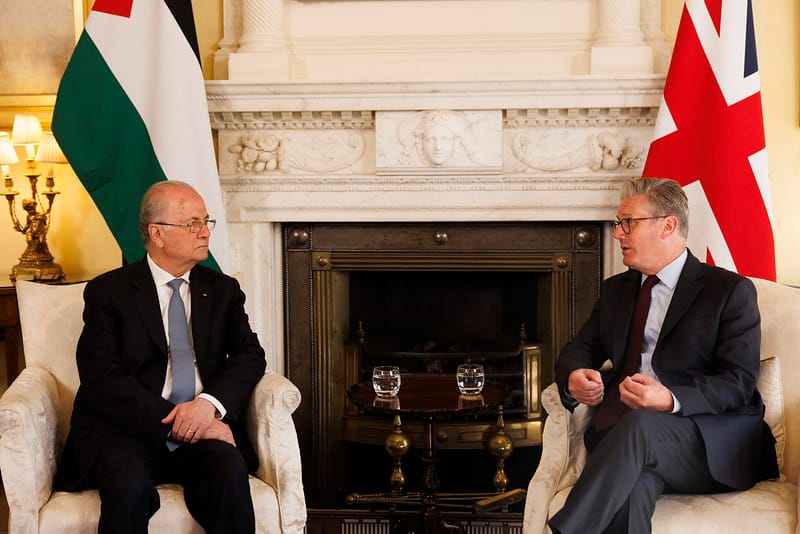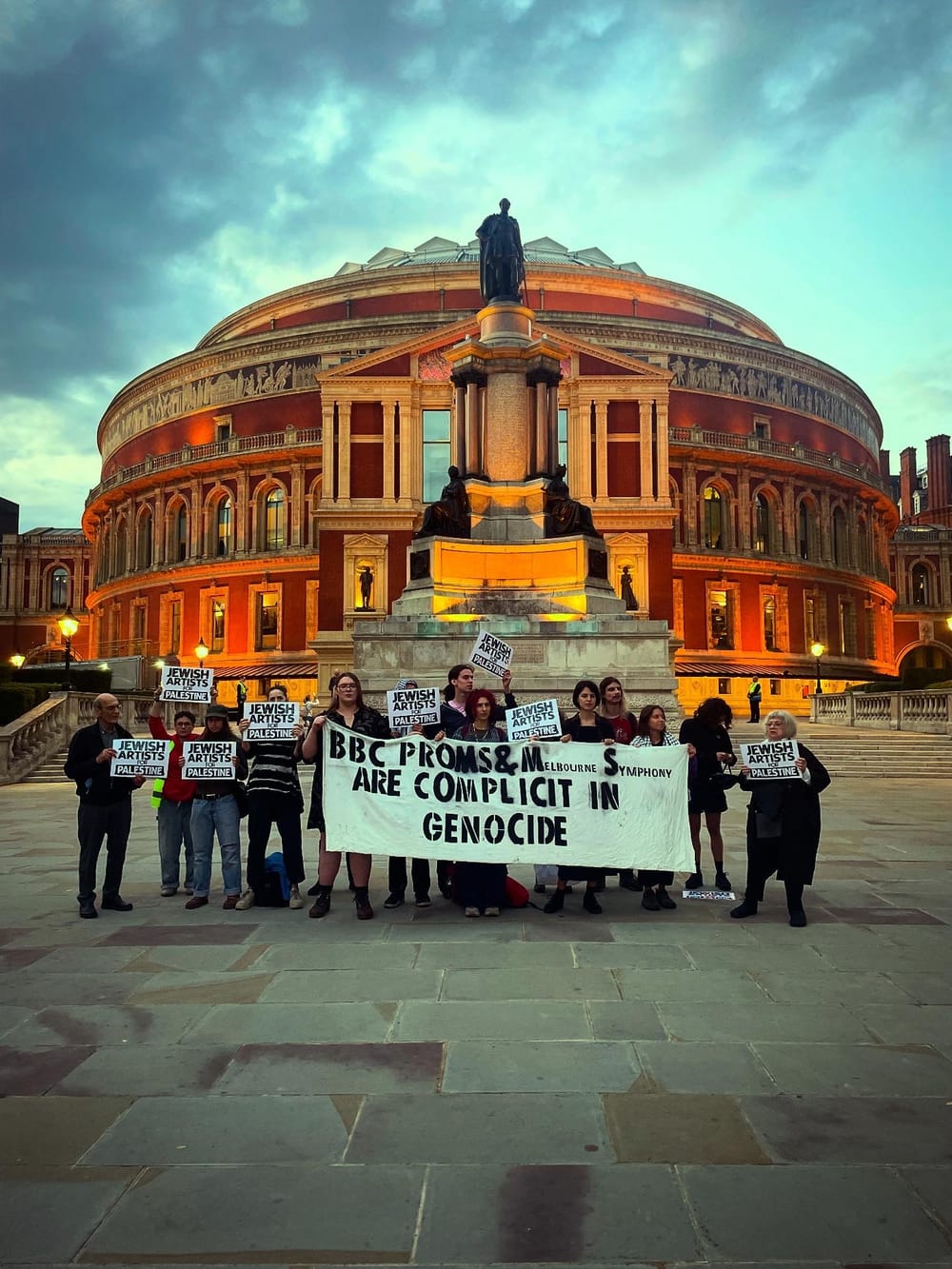Conditional humanity
Making two of the necessary steps towards justice mutually exclusive is strange politics.

This week, Keir Starmer announced plans for Britain to recognise the state of Palestine – probably. The not-quite-decision followed news that France is committed to recognition at the UN General Assembly in September. Canada has since said the same. Spain, Ireland, and Norway each recognised Palestine last year.
These moves isolate Israel and the US further. If and when recognition by France and Britain goes ahead, the US will be the last permanent member of the UN Security Council not to have taken the step. The US State Department has now imposed sanctions on the Palestinian Authority and the Palestinian Liberation Organisation for “undermining the prospects for peace”, which could block Palestinian officials from accessing the UN HQ in September. Benjamin Netanyahu called the recognition plans a “reward” for Hamas and terrorism, a statement echoed by a number of former Israeli hostages and the families of those still being held.
Given the scale of destruction in the territory Hamas controls, this reward would be a pyrrhic one. More attention has been directed at a warning from a group of peers that recognition by Britain could itself breach a facet of international law: specifically, an agreement signed in 1933 as part of the seventh Pan-American Conference. The Montevideo Convention sets out four criteria for the recognition of a state: a defined territory, a permanent population, a government, and the capacity to enter into international relations. The peers wrote to Attorney General Richard Hermer to point out the lack of certainty over the borders of a Palestinian state and the splintered control under which it operates. They also suggested that there could be difficulty in continuing to recognise Palestinians as “refugees” if they are understood to be in their own state.
This concern about the situation of Palestinian refugees does not come – at least in the report from The Times, which claims to have seen the letter – alongside a claim that Palestinians should be allowed to return to their actual places of origin. Neither do concerns about the changeability of the territories’ borders and the fragmentation of their governance appear to reflect the role partition, occupation, settlement, and regular military incursions play in both.
The letter’s critics, ministers among them, have argued both that the convention does not apply to Britain, which was never a signatory, and that more recent developments in international law, including the formalisation of the principle of self-determination, have supplanted its requirements. That 147 of 193 UN member states already recognise Palestine shows that Montevideo is not the international standard, which makes its invocation feel dubious at best.
This apparent reaching for a legal basis on which to oppose recognition – including by signatories like Lord Walney, whose true motivations probably lie elsewhere – only buoys the idea that recognition is a very big deal. Symbolically, it is. In the words of Husam Zomlot, Palestinian Ambassador to Britain, recognition “is a long-overdue affirmation of the Palestinian people’s unconditional right to exist and live freely in our homeland,” and “a central foundation on which a peaceful future can be built.”
What it is not, Zomlot goes on to point out, is “the end of the road,” nor can it be allowed to become that. The touting of recognition as the beginning of a two-state solution raises concerns that this shift will only repeat steps that have already failed, or refuse to reckon with the one-state reality of Israeli control, evidenced most recently in the Knesset’s vote to annex the West Bank. (Though non-binding, the vote is indicative of feeling.)
More practically, and more urgently, there is the experience of the individuals on the ground, which will not be changed by symbolic shifts alone. This is particularly relevant in the case of British recognition, which Keir Starmer has said will only take place if Israel fails to agree to a ceasefire and take steps to peace before September. In other words: Palestinians will only be granted the right to self-determination if they also continue to be blown up. They must buy statehood with their lives. This is in contravention of the unconditional promise of recognition of Palestinian statehood on which Starmer’s government was elected.
To make two of the necessary steps towards peace and justice mutually exclusive is strange politics. Hostage families are right that this condition also disincentivises agreement to a ceasefire, or the release of hostages, on the part of Hamas. To have recognition without a ceasefire is obviously unacceptable, and if there were a ceasefire without recognition: what then? How does the two-state solution come about following the fulfilment of conditions that one state has been told would prevent it?
The obvious irony, and the limit of earlier UK government approaches to recognition, is that the fact Israel can do anything to impact the acknowledgement of Palestinian independence is proof of how badly that independence is needed. This kind of misuse of the principles of international law, the warping of protections and rights into means of leverage, reminds me of lawyerly interventions back in 2023 making the point that those rules were born of the Holocaust and World War II and therefore form part of our Jewish inheritance. To find them too slow to move, or too selectively applied, to stop this violence is one thing. To hear them picked apart to give cowardice cover is another.▼
To donate once or monthly, click here.
Author

Francesca Newton is assistant editor at Tribune and an editor at Vashti. She currently lives in Melbourne.
Sign up for The Pickle and New, From Vashti.
Stay up to date with Vashti.



